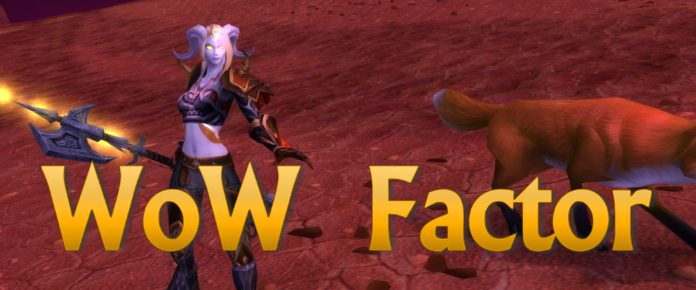
When Blizzard president Mike Morhaime announced he was stepping down from his 27-year-run at the company back in 2018, he didn’t give much of a reason, and it didn’t seem as if he wanted out of the industry since he almost immediately went back into game development. Now, it sounds as if we’re about to get some juicy backstory as Bloomberg’s Jason Schreier has a new book coming out called Play Nice: The Rise And Fall Of Blizzard Entertainment (not an affiliate link), which (through 350+ sources and interviews) aims to explore the apparently fraught relationship between Morhaime and Bobby Kotick – and suggests that Blizzard was in trouble long before the corporate drama of 2021.
According to the book excerpt published on Bloomberg, the problems stemmed at least in part from an MMORPG: Project Titan. Or more specifically, its cancelation. You remember Titan – the World of Warcraft successor that was canned after seven years and $80M, and eventually rehabbed as Overwatch? Schreier’s reporting argues that 2013 was the pivotal year for Blizzard’s decline, as Blizzard canceled Titan in the spring and then Kotick finished buying out Vivendi to take full control of Activision-Blizzard – and Kotick wasn’t happy about the “Titan debacle.”
Allegedly, ABK then pushed to install a new Blizzard CFO, who came in and did all those things you imagine finance people do. In his first interview, the new CFO “just kept talking about how to make as much money as possible” and wanted to “kill […] expensive projects with low profit margins” like BlizzCon, Schreier says. “Suddenly, finance people who’d otherwise been relegated to the background were fixtures in strategy meetings, asking why Hearthstone, a Magic: The Gathering-esque mobile game, wasn’t pushing players to buy card packs more often and why Overwatch, an online shooting game, wasn’t selling maps and heroes to generate extra revenue.”
Blizzard’s internal culture continued to worsen, Schreier’s sources suggest, as ABK’s growing base of executives working inside Blizzard reportedly pushed to get rid of “nondevelopment departments” (like customer service and cinematics teams), to give bonuses to teams who made big profits (instead of experimenting on new ideas), and to push for Overwatch League, reportedly because Kotick wanted to expand beyond games. By 2018, Schreier’s sources say, Morhaime saw the writing on the wall about Blizzard’s independence and staff bleed – and even “entry-level Blizzard employees were accepting a reality that had long been shielded from them: Activision people were everywhere.” Apparently, Morhaime tried resigning in 2017, but Kotick talked him out of it. By 2018, he was giving up again.
“I believe that preserving Blizzard’s culture and magic is a necessity for preserving Activision Blizzard’s advantage of having an organization that can attract and retain the best creative talent in the world and that can consistently produce the highest quality games and experiences,” Morhaime wrote to Kotick. “It has been increasingly hard for me to provide Blizzard leadership and staff confidence that Blizzard has a stable future.” That fall, he announced his departure. Here’s how Schreier’s excerpt:
“[T]hose who worked closely with him knew why he’d left: He was tired of fighting with Kotick. ‘He looked like a second-term president,’ said one former executive who asked not to be identified. Blizzard’s staff was devastated. They worshipped Morhaime. He was the boss who greeted receptionists by name and responded directly to emails from low-level workers. Hundreds of employees wrote emails and letters to Morhaime to thank him and wish him farewell. They soon discovered what Morhaime already knew: Blizzard would never be the same.”
In other words, when folks said the Blizzard they loved was dead, they weren’t wrong. Say, anybody hear from Jeff Kaplan lately?
Play Nice: The Rise And Fall Of Blizzard Entertainment officially releases October 8th.















